Steven Spielberg and Tom Hanks on The Post, fastest film director has ever made, and sci-fi movie Ready Player One
The 71-year-old filmmaker is well known for having projects overlap, most disconcertingly when he worked simultaneously on Schindler’s List and Jurassic Park. His latest two-step is a classic journalism tale and a virtual-reality spectacular
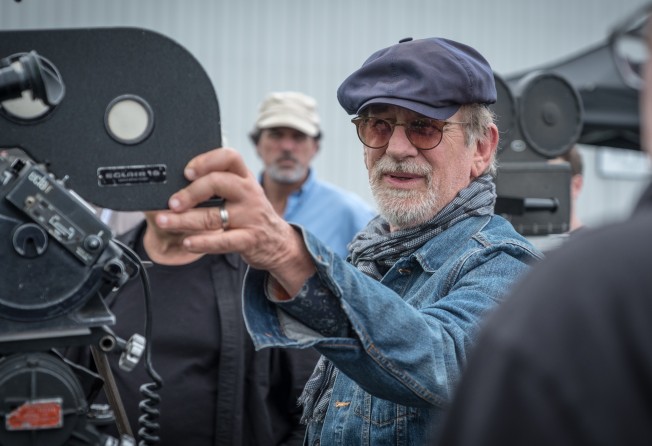
Steven Spielberg talks quickly, and works even faster. When we meet in a London hotel, the director of such classics as Jaws and Schindler’s List is full of zappy energy. His latest film, The Post, was shot inside nine months, he says, during the lengthy post-production for Ready Player One, his sci-fi feature due in late March.
“We didn’t sacrifice quality,” he says. “If I had another 12 months, it would’ve been the same movie. I really believe that.”
The script by Liz Hannah and Josh Singer was on the “Black List” of the top unproduced screenplays, circulated in Hollywood, in 2016. Then Spielberg, in the year Donald Trump entered the White House, decided the time was ripe to make a story about free speech. He calls it “instantaneous” filmmaking, far removed from the way most of his films come together – he usually lets projects percolate.
“In the entire span of my 49 years professionally directing, I never had a film come together in this way,” says the 71-year-old.
Spielberg is well known for doubling down. “I’ve overlapped a lot. The biggest overlap was Schindler’s List and Jurassic Park. That was the most disconcerting overlap I’ve ever had in my life. It was almost too much to bear.”
The Holocaust and a dinosaur theme park – not exactly complementary subject matter. The same goes for his 2015 cold war drama Bridge of Spies and his Roald Dahl adaptation The BFG , which arrived in cinemas within six months of each other. No other Hollywood director works with this speed.
“He is faster than ever before,” says The Post star Tom Hanks, who has been directed by Spielberg five times now, beginning with 1998’s Saving Private Ryan.
In the entire span of my 49 years professionally directing, I never had a film come together in this way
“This year he is made Ready Player One – which I have not seen, but I know it’s special-effects-laden, [and] it required months of pre-visions. That is one way of making a movie and there’s another: let’s make it as fast as we can. All we need is a film in a camera, lights and a set. He can do both and oftentimes he is liberated by the latter.”
Spielberg has rarely been quite so political as he is with The Post. The film is set in 1971, when America was disastrously losing the Vietnam war. The story is one of diligent reporting, as The New York Times and The Washington Post, led by Hanks’ executive editor Ben Bradlee, set out to publish the Pentagon Papers – internal documents of the US Department of Defence that laid bare the reality of the war shielded from the public.
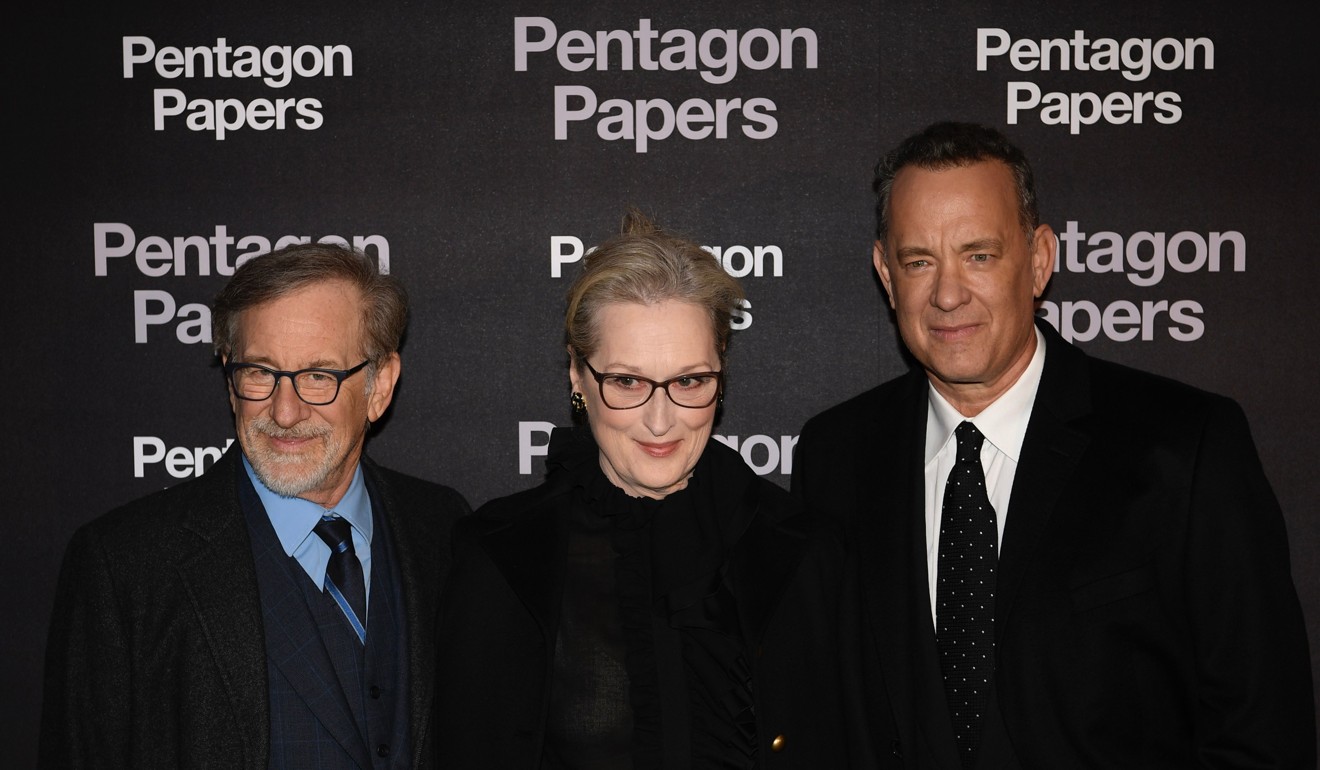
The film recounts how editorial teams fought the Richard Nixon-era White House, which obtained a court injunction to prevent the publishing of the papers, and examines the very fragile freedoms of the press.
Spielberg denies the film is meant as a riposte to Trump’s first year in office. “I think the issues are much bigger than one administration. Had the election gone in a different way, I still would’ve found a real urgency to tell the story,” he says.
Spielberg’s way in was Katharine Graham (played by Meryl Streep), the socialite owner of The Washington Post who has taken over the paper from her late husband and her father, who founded it. Graham’s autobiography, Personal History, which detailed her battles in the board room in an all-male environment, piqued his interest.
“This is a movie about a woman who was discriminated against because she was a woman, even though she was in control of the men who discriminated against her.” It hooked the director. “I can relate to how Katherine Graham felt isolated and surrounded and beset and besieged.”
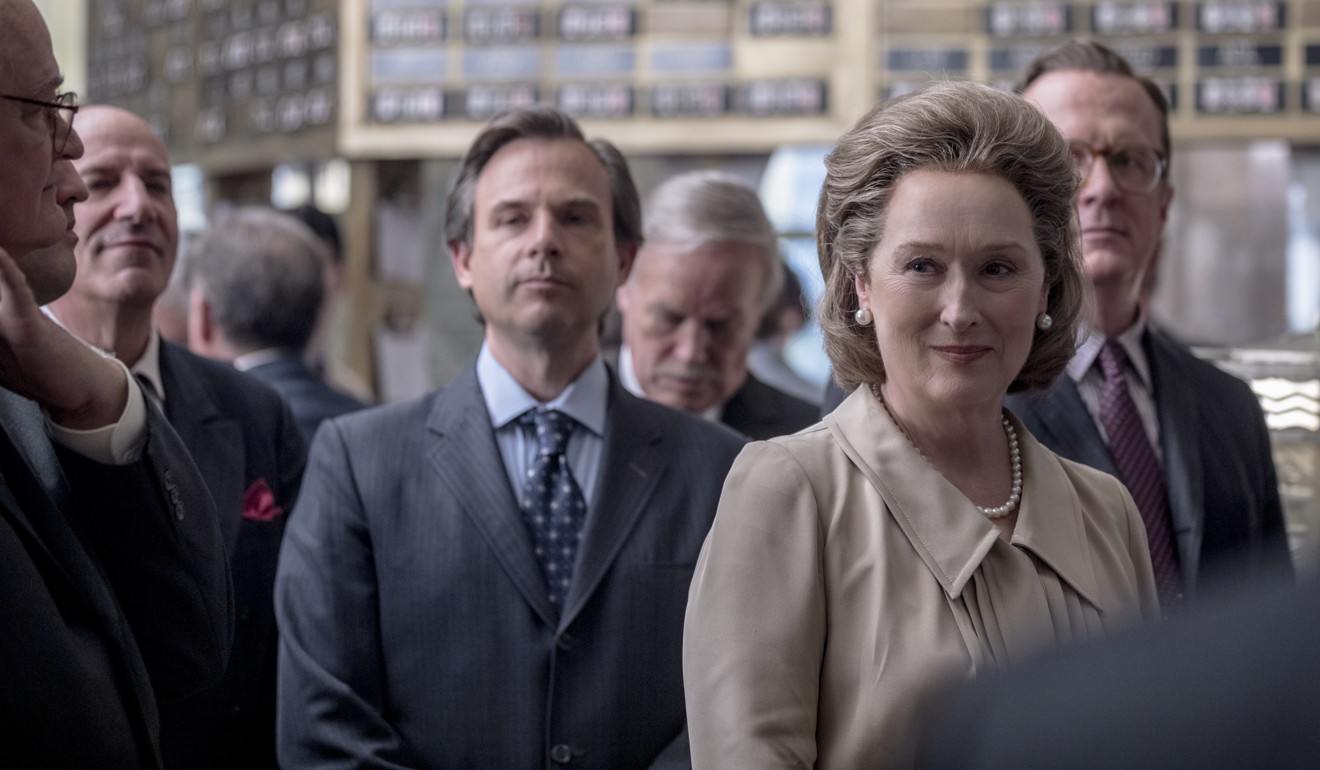
Spielberg starts telling a story about his upbringing in Cincinnati, in the US state of Ohio – raised by his mother, a restaurateur, and his father, an electrical engineer.
He is faster than ever before
The only Jewish kid in a non-Jewish suburb, “I know what it feels like to stand out,” he says. “I know what it feels like to be looked at differently, to be discriminated against. I know what it feels like to be excluded from conversations and playtime and sports.”
In time, the film will surely make a fascinating double bill with 1976’s All the President’s Men , which starred Robert Redford and Dustin Hoffman as Bob Woodward and Carl Bernstein, The Washington Post reporters who broke the Watergate scandal that eventually led to Nixon’s impeachment and resignation.
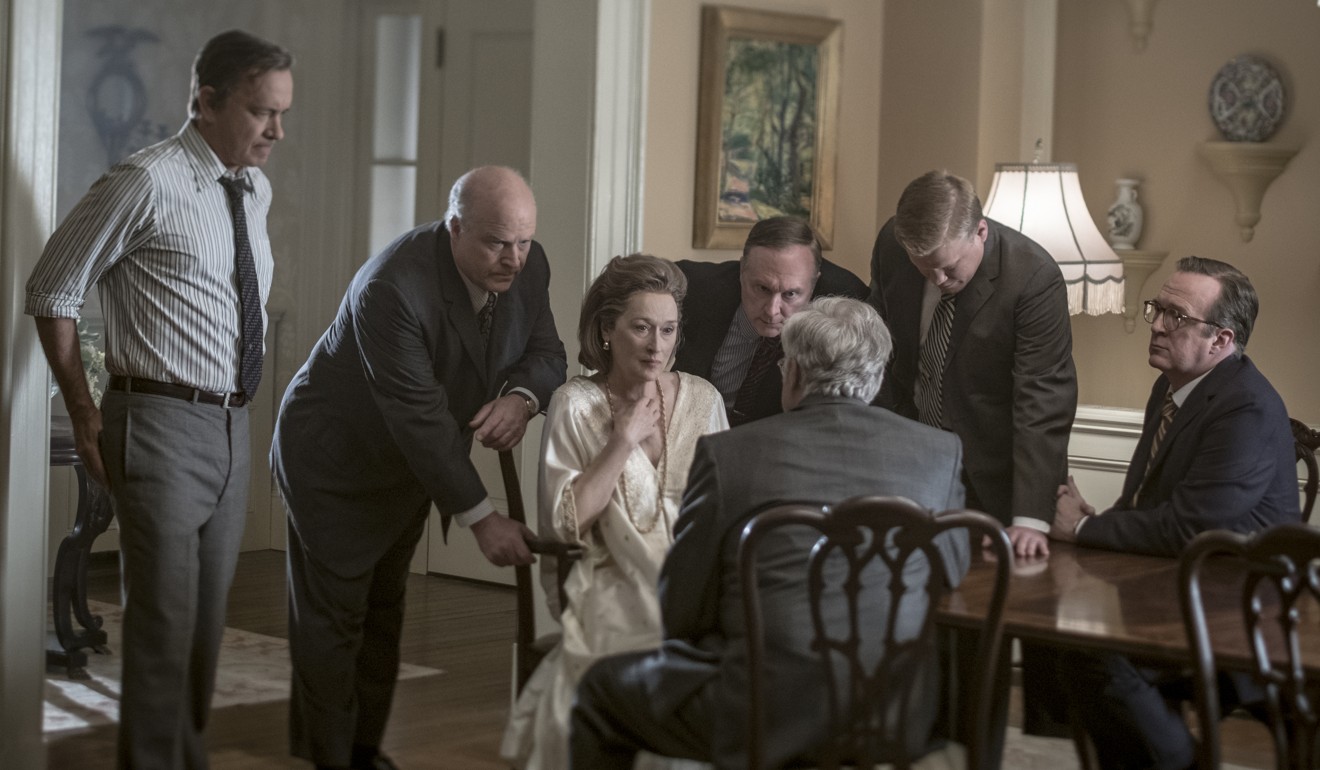
Certainly, both films serve to remind movie-goers of the importance of a media designed to serve the governed rather than those that govern. Yet Spielberg’s movie does not set out to demonise Nixon.
“I don’t consider Richard Nixon a lunatic,” he argues. “Richard Nixon accomplished a lot in his presidency.”
What is strange is the way the film has been largely frozen out of in awards season. Despite six Golden Globe nominations, it went home empty-handed. And last week saw it receive only two Oscar nominations – albeit significant ones, with the film up for best picture and Streep in the running in the best actress category, staggeringly her 21st Academy Award nomination.
Perhaps Americans weren’t ready for a film that reminded them too closely of the chaos currently playing out in the White House? Spielberg, who won best director Oscars for Schindler’s List and Saving Private Ryan, is doubtless too busy fine-tuning Ready Player One to worry too much.
That film, based on a book by Ernest Cline, is a glimpse into a dystopian future when people escape for solace into a virtual reality world called Oasis. “We’ll be criticised for some of the virtual reality we’re attempting with Ready Player One,” says Spielberg, who believes virtual reality will become a super-drug for some.
He calls the project “a whole different animal”, with complex visual effects being created by VFX house Industrial Light & Magic. “The Post was a much easier film to make than Ready Player One because it had no layers of technical wizardry to make it convincing to the public. It was just a straight story almost like a stage play.
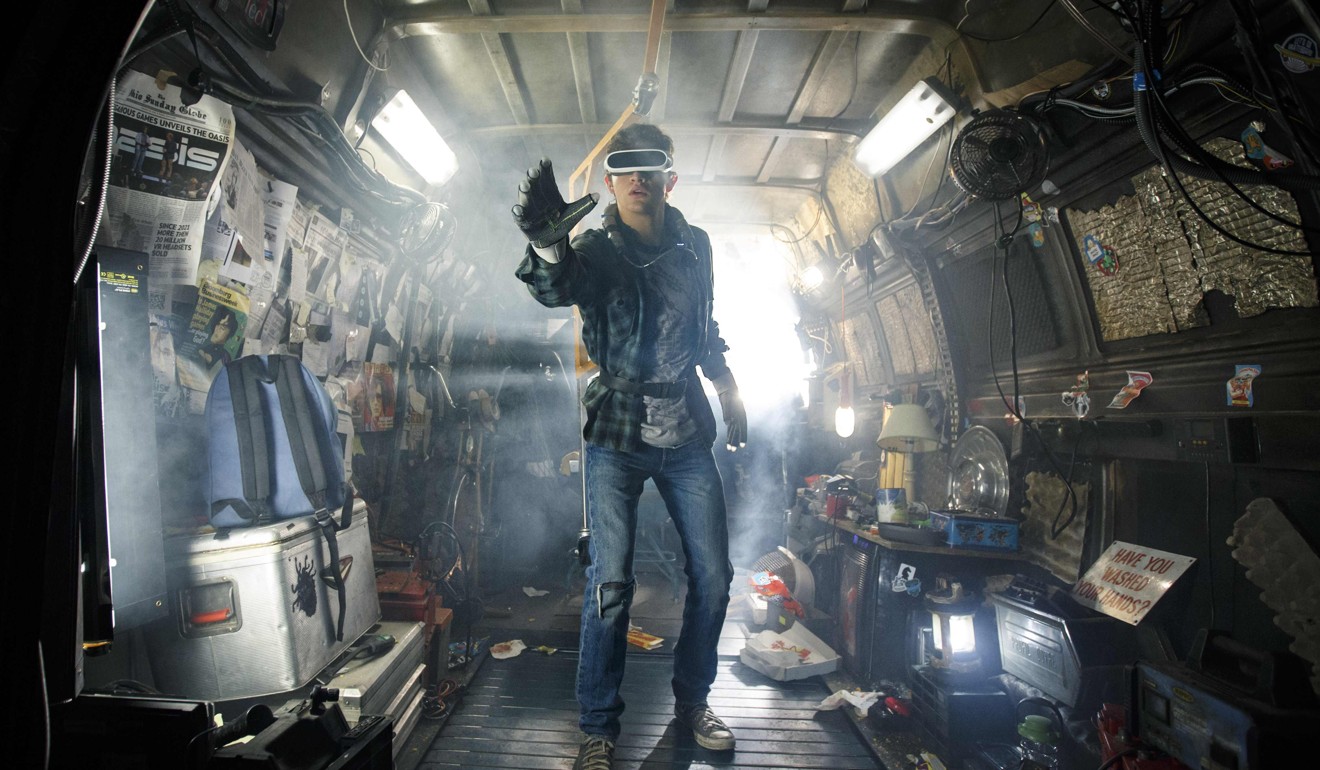
“So there was a great freedom for me not to be weighted down by technology in order to find the story. This was all about storytelling, about performance.”
Past, present and future – Spielberg has a grip on them all.
The Post opens on February 1. Ready Player One opens on March 29
Want more articles like this? Follow SCMP Film on Facebook